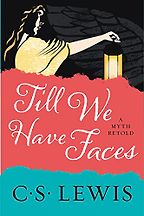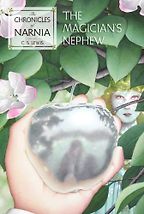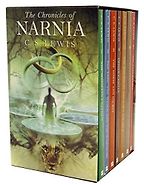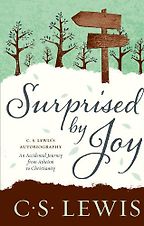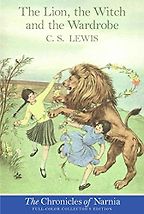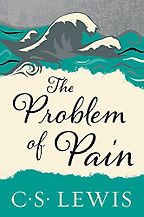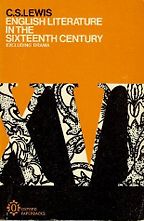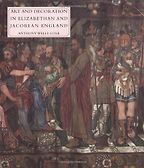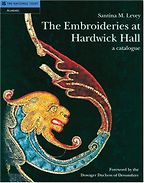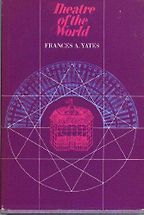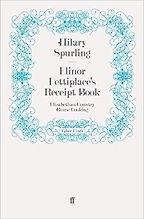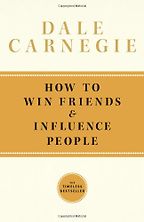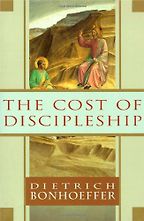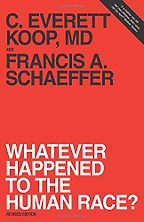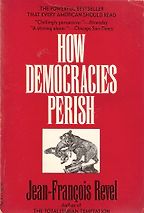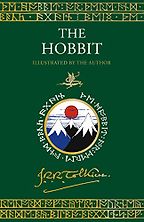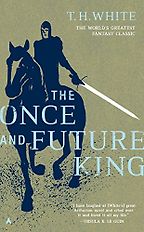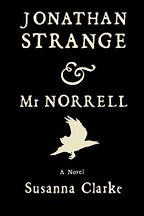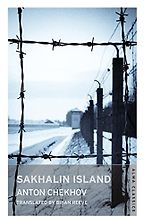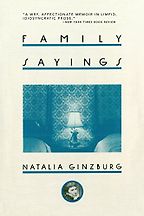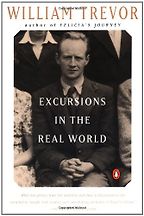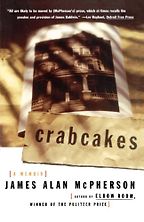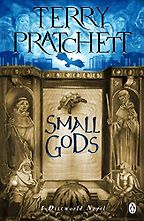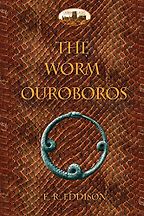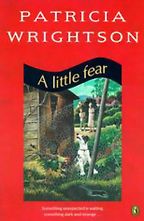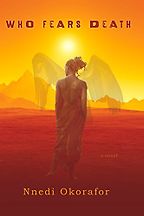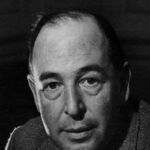
Books by C S Lewis
C S Lewis (Clive Staples Lewis) (1898-1963) People think of C S Lewis as a novelist but he was also an English don at Magdalen College, Oxford.
He is most famous for the Narnia books which have sold over 100 million copies.
Both his fiction and nonfiction books have been recommended many times on Five Books.
“Till We Have Faces was C. S. Lewis’s last book. He considered it his best —we’re in agreement there. It’s his retelling of the myth of Cupid and Psyche. In this book, not only do we see his love for Greek myth, we see him working out theology questions that he’s been pondering in his life, throughout his studies, and in his fiction. I absolutely love it because, first of all, it features one of the best female protagonists I’ve ever read.” Read more...
The Best Speculative Fiction About Gods and Godlike Beings
Karen Lord, Novelist
If it’s the magic in Harry Potter that appeals, it’s also worth reading The Magician’s Nephew (1955) by CS Lewis. Most people are familiar with the Chronicles of Narnia: this book, The Magician’s Nephew, is part of the series but precedes The Lion, the Witch and the Wardrobe by a millennium. Like JK Rowling, CS Lewis is very good at juxtaposing the everyday and the magical. As the book opens, you can almost feel yourself in 1950s London, as Polly and Digory meet over the garden wall.
From our article Books like Harry Potter
“This book is more about thoughts than about straight experience – it’s about a man tracing back his mind” Read more...
Yiyun Li, Memoirist
“Everyone knows Lewis’s Narnia books are a foundational work of the modern fantastic. But I don’t think Lewis gets enough credit for his craft as a writer. Those books are deceptively simple. Look at the way he constructed the opening of The Lion, the Witch and the Wardrobe. He puts the shadows of the war in the background, the excitement of a new house in the country in the foreground. Look at how he carefully sketches all the relationships between all four of the Pevensie children. And when he sends Lucy through the wardrobe (it’s on page five – he doesn’t waste time), it’s like nothing else in fiction up to that point. There are no sparkles, no wondrous rhetoric, just one precisely observed sensory detail after another: A dead bluebottle on a windowsill; some soft coats; some cold crunchy snow; some prickly pine branches – and then you’re in Narnia. People dismiss Lewis as a Christian propagandist, but that’s a mistake. He was a novelist before he was a Christian.” Read more...
Lev Grossman, Novelist
The Problem of Pain
by C S Lewis
It reminds me that being a believer does not exempt me from pain. Pain is not a punishment for anything we’ve done wrong. We can’t keep pain from happening, but we can determine how we handle it and learn from it.
“People think of C S Lewis as a novelist really now, of course; he was an English don at Magdalen. I chose it really because it’s a work which I’ve found incredibly useful. It just is, in its way, a brilliant book, because it’s both scholarly and readable, comprehensive and perceptive. He’s interested in the intellectual background of the period. It covers all Elizabethan and early Jacobean literature, excluding drama of course, which is a big exclusion, but that would have needed another book. It’s quite critical – that’s a good thing – and lively, and he goes through it chronologically. It’s also very useful and illuminating: when he comes to an author there’s a footnote with a potted biography. He really gets one interested in the writers who interest him or who he values, and makes you want to read them – or not read them.” Read more...
The best books on Art and Culture in Elizabethan England
Mark Girouard, Architects & Architectural Historian
Interviews where books by C S Lewis were recommended
The best books on Art and Culture in Elizabethan England, recommended by Mark Girouard
Leading architectural historian, chooses books on art and culture in the Elizabethan era. From CS Lewis on literature, to the fantastic embroideries at Hardwick Hall, to baked rabbit and more.
The best books on Simple Governance, recommended by Mike Huckabee
Conservative broadcaster, former Arkansas governor, and possible 2012 contender challenges the concept of the elite and says that faith alone, without action, is meaningless
The best books on Fantasy, recommended by Lev Grossman
We’re living through a golden age for fantasy, says Lev Grossman, author of The Magicians. Here, he tells us what makes for a good fantasy novel, and who’s staking out the future not just of fantasy but of fiction as a whole.
The Best ‘Anti-Memoirs’, recommended by Yiyun Li
Yiyun Li, author of Dear Friend, from My Life I Write to You in Your Life, on the sheer messiness of life, the irrelevance of ‘I’, and why brutal honesty is often the truest way to capture the people we love the most
The Best Speculative Fiction About Gods and Godlike Beings, recommended by Karen Lord
Many works of science fiction and fantasy involve a character changed forever after they meet a powerful being—sometimes a god, sometimes a not-quite-god. Karen Lord, an award-winning sci-fi author whose latest novel combines the seductive powers of celebrity and alien contact, recommends five books where gods or god-like beings turn the hero’s world upside down.
The best books on Fantasy’s Many Uses, recommended by Brian Attebery
Visionary storytelling, or fantasy, is part of our cultural DNA. Far from being simply fantastical or facile, we can use the fantasy realm as a testing ground for important ideas, argues Brian Attebery, a leading scholar of the genre. He talks us through five key works that demonstrate fantasy’s many uses, from 1922 through 2010.
